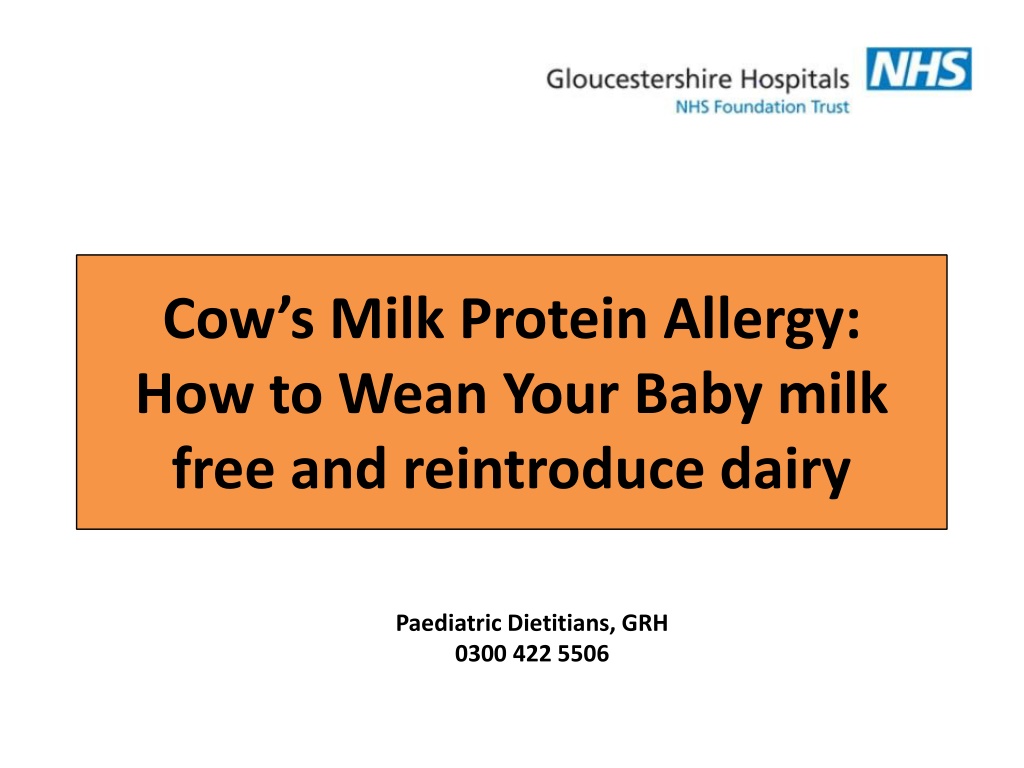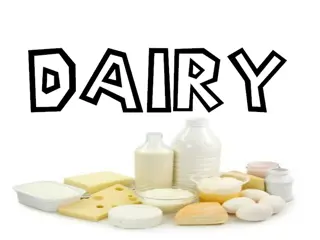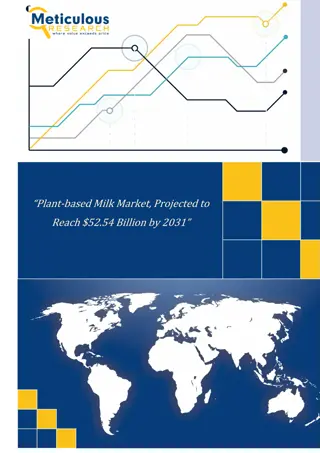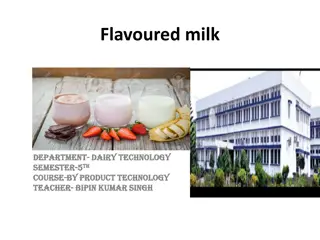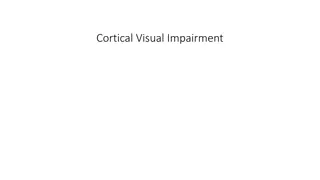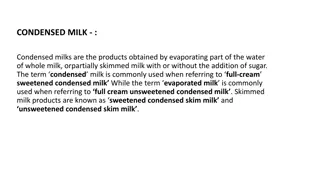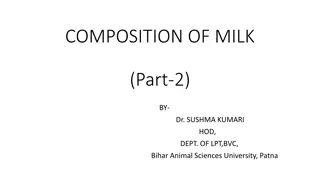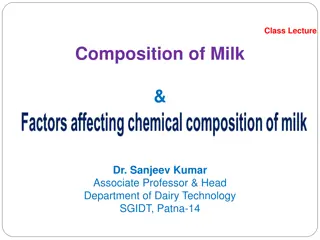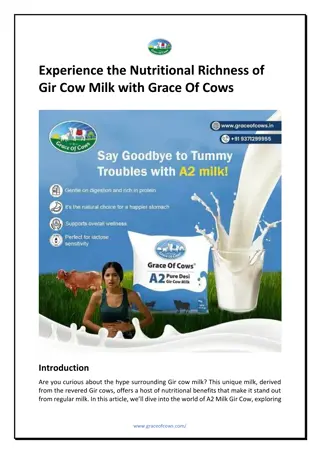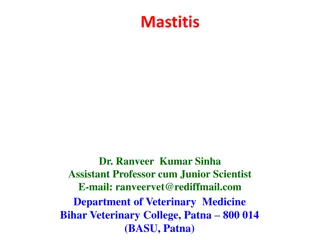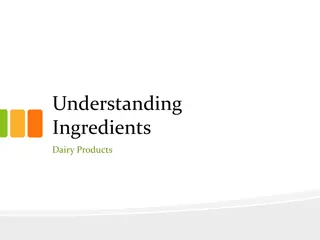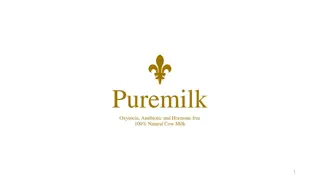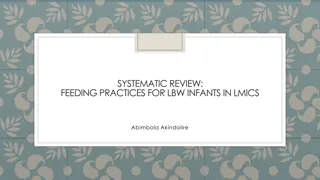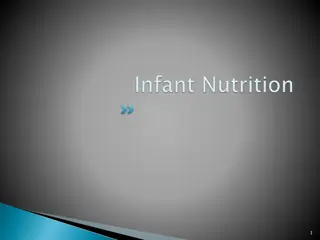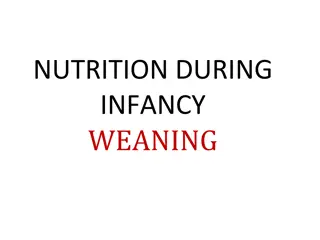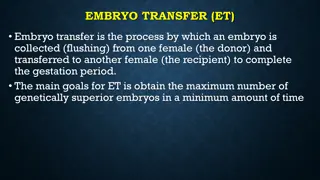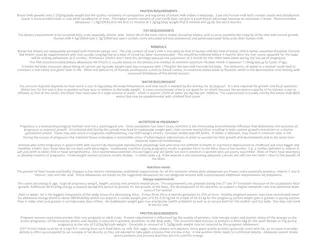Managing Cows Milk Protein Allergy (CMPA) in Infants: Weaning and Reintroduction Guidelines
Cows Milk Protein Allergy (CMPA) in infants can present various symptoms and challenges. This guide covers the diagnosis, symptoms, weaning strategies, reintroduction of dairy, alternative products, and meeting nutritional needs. Learn to differentiate between CMPA and lactose intolerance for proper management and care for affected infants.
Download Presentation

Please find below an Image/Link to download the presentation.
The content on the website is provided AS IS for your information and personal use only. It may not be sold, licensed, or shared on other websites without obtaining consent from the author. Download presentation by click this link. If you encounter any issues during the download, it is possible that the publisher has removed the file from their server.
E N D
Presentation Transcript
Cows Milk Protein Allergy: How to Wean Your Baby milk free and reintroduce dairy Paediatric Dietitians, GRH 0300 422 5506
Outline of Session What is Cow s Milk Protein Allergy? Symptoms and Diagnosis Lactose Intolerance or CMPA? Treatment of Cow s Milk Protein Allergy Food Labelling Cow s Milk Free Weaning (Meal Ideas) Introduction Of Other Common Allergenic Foods Cow s Milk Free Alternative Products Reintroducing Cow s Milk Back Into The Diet Meeting Calcium Requirements & Vitamins and Minerals
What is Cows milk allergy (CMPA) CMPA is an abnormal response by the bodys immune system in which proteins in a food(in this case cows milk) are recognised as a potential threat . This can then cause the immune system to become sensitised . When this happens, there is potential that when cow s milk is consumed the immune system remembers this protein and may react to it by producing allergic symptoms. (Allergy UK)
CMPA One of the most common food allergies to occur in children affects 2 5% of children Two types of CMPA: Immediate (IgE mediated),symptoms typically show within minutes of having milk Delayed (non-IgE mediated), symptoms typically show within hours, sometimes days, after having milk
Symptoms of Cows Milk Protein Allergy Diarrhoea or constipation, stomach ache, nausea, reflux or vomiting, blood or mucus in stools, wind, discomfort with feeding Itchy skin rashes & eczema Runny or blocked nose Swelling of the face, eyes, lips Swallowing or breathing difficulties (rare)
Diagnosis of Cows Milk Protein Allergy Dependent on type of allergy Immediate reactions (IgE mediated) Delayed reactions (non-IgE mediated) Blood tests (RAST test) Food exclusion & reintroduction Skin prick test
Sure its CMPA? What is Lactose Intolerance? Body cannot digest the sugar in cow s milk (lactose) Often confused with cow s milk protein allergy An intolerance, not an allergy Very rare affects 1% of UK population Can be temporary following an upset tummy/ gastro bug/antibiotics Symptoms are very similar to cow s milk protein allergy: Diarrhoea, nausea & occasional vomiting, wind, tummy ache
Breastfeeding Symptoms from non-IgE CMPA in exclusively breastfed babies is uncommon so its not a reason to stop If your baby s symptoms only began when you introduced a top-up infant formula try to revert back to breastfeeding/EBM only if possible Non-IgE mediated CMPA can only be diagnosed through an elimination diet, followed by the reintroduction of cow s milk into the breastfeeding mother s diet (to confirm a return of symptoms).
Maternal Cows milk exclusion When CMPA is suspected a strict maternal dairy free exclusion is advised. Re-introduction recommended after 4 weeks to confirm diagnosis. 10ug vitamin D and 1250mg calcium supplement recommended
Treatment for suspected CMPA A diet free from cow s milk and food made with cow s milk avoid milk and food products from other animals, such as sheep, goat & buffalo as the protein is very similar to the protein in cow s milk If under 1 year of age, your child should have breast milk or a suitable hypoallergenic formula
Soya Soya products can be introduced from 6 months of age. There is a 50% chance that if your child has a CMPA they may react to soya. Symptoms will be similar. If you suspect this then a 2 week period of avoidance with re-introduction is recommended.
Food Labelling To follow a CM free diet, it is important to check food labels: Pre-packed food allergens are emphasised on the label, e.g. skimmed milk powder, hydrolysed casein (Milk), cream (from milk) Foods without packaging/food served whilst you are out written or verbal information on allergens needs to be provided by staff May contain warnings food may be contaminated with an allergen by accident The law only covers allergens used as ingredients, not allergens that may be present following accidental contact For medicines, always check with your pharmacist
Top Tips Check ALL food labels you ll be surprised by what contains milk! Ask your local supermarket for a list of their own brand foods which are cow s milk free Don t assume that a free from product will be free from all allergens - always check the label Online supermarket sites are useful but always check the label of the product
Cows Milk Protein Free Weaning This is the same as weaning a non-allergic baby except you are avoiding foods which contain cow s milk Weaning occurs around 6 months Stage 1 Try mashed or pureed fruit and vegetables like parsnip, potato, yam, sweet potato, carrot, apple or pear Baby rice or porridge (remember to check food labels) Use baby s usual milk (breast milk or hypoallergenic formula) to mix food to desired consistency Pureed/mashed meat, chicken or lentils
Stages 2 & 3 Meal Ideas Breakfast Cow s milk free breakfast cereal/porridge with milk substitute Toast fingers with cow s milk protein free spread Pancakes made with milk substitute Main meals Baked beans or scrambled egg on toast Meat/chicken or fish with potato/rice and vegetables Pasta with a tomato, roasted vegetable sauce or cow s milk free white sauce. Can add cow s milk free cheese. Flaked fish poached in a milk substitute, mashed potato & vegetables Shepherd s Pie using cow s milk free substitutes Omelette using soya milk & cheese alternative
Puddings Fruit Cow s milk free yoghurts, desserts, ice cream, custard (serve with fruit) Rice pudding, semolina or custard made with milk alternative Milk jelly using milk alternatives Finger food/snacks Raw vegetable sticks Dried fruit/small pieces of soft, ripe fruit Cow s milk free cheese cubes/slices Breadsticks or hummus Crumpets/bagels/pittas/cheese scone made with cheese alternative Sandwiches with egg/tuna/chicken/ham/cow s milk free cheese spread
Introduction Of Other Common Allergenic Foods Includes: egg, soya, wheat, peanuts and other nuts, sesame seeds, mustard seed, celery, fish and shellfish Do not delay the introduction of these from 6 months of age Introduce by giving one new food at a time to help identify any foods your baby may react to
Other Cows Milk Free Alternative Products Spreads Cheese Yoghurts & desserts Ice creams & frozen desserts Creams/Custards/Cr me Fraiche Chocolate
Will My Child Grow Out Of Their Cows Milk Protein Allergy? Some children with mild to moderate non-IgE mediated cow s milk protein allergy will grow out of it by their first birthday Most children will grow out of their allergy between 1 and 3 years of age Some may take longer than this or may not grow out of it
Reintroducing Cows Milk Back Into The Diet Milk (containing cow s protein) can be reintroduced into the diet at 9-12 months of age OR 6 months after starting a cow s milk free diet Use the Milk Ladder Ensure your child is well before commencing Begin at step 1 and consume the amount of food suggested If the food is tolerated, continue giving your child this food and then try the next step and so on If the food is not tolerated, stop and try again with this step in 8-12 weeks. Continue to keep any milk containing food that was tolerated in the diet
Meeting Calcium Requirements Important to ensure that your child is receiving enough calcium when following a cow s milk protein free diet Breastfeeding mums who are following a cow s milk protein free diet may need a calcium supplement Calcium requirements change with age Use foods fortified with calcium to help meet requirements, e.g. cow s milk protein alternatives
How much calcium? Age Calcium (mg per day) 0-12 months 525mg 1-3 years 350mg 4-6 years 450mg 7-10 years 550mg 11-18 year 800mg (girls) 1000mg (boys) Breastfeeding mums 1250mg
How to meet 350mg calcium 100ml fortified plant milk 50mg tofu slice of bread 4 tsb of soya yogurt 3tbsp (12g) ready oats 100ml fortified plant milk 85g broccoli 1 large orange 200ml fortified plant based milk
Vitamins for Children The government recommends: ALL children aged 6 months to 5 years are given vitamin supplements containing vitamins A, C & D Babies who are breastfed are given a daily vitamin D supplement from birth Babies who are formula fed, who are getting more than 500ml (about a pint) of formula per day do not need extra vitamins
Useful Links For support Allergy UK www.allergyuk.org NHS Choices www.nhs.uk British Dietetic Association www.bda.org.uk For recipes (cooking with cow s milk free alternatives) www.oatly.com www.alpro.com www.kokodairyfree.com www.provamel.com www.tofutti.com www.violifefoods.com
Resources and Support Scan here to take you to our self-help library of resources! https://www.gloshospitals.nhs.uk/our-services/services-we-offer/nutrition- dietetics/self-help-resource-library/ https://patientwebinars.co.uk/condition/food-allergy-in-children/ https://www.gloshospitals.nhs.uk/our-services/services-we-offer/nutrition- dietetics/paediatric-dietitian-resources/ https://www.rosan-paediatricdietitian.com/webinars/
Breastfeeding support 1. Local NHS Breastfeeding support service (details in your baby s red book) - a good first stop. 2. Breastfeeding support telephone lines: National Breastfeeding Helpline 0300 100 0212. Association of Breastfeeding Mothers 0300 330 5453. National Childbirth Trust (NCT) 0300 330 0700. 3. La Leche League (0345 120 2918) provides very useful information on breastfeeding on their website, you can find a local group that may be able to also support you. www.laleche.org.uk 4. The Breastfeeding Network provides support for breastfeeding and have drop in centres and provide telephone support. https://www.breastfeedingnetwork.org.uk/breastfeeding-support/
Breastfeeding support 5. Breastfeeding support group for children with cow s milk allergy: https://www.facebook.com/groupsCMPASforBreastFeeding/ 6. The NHS also has support websites: https://www.nhs.uk/conditions/pregnancy-and-baby/benefits-breastfeeding/ https://www.nhs.uk/conditions/pregnancy-and-baby/problems-breastfeeding/ 7. GPs can access information on www.gpifn.org.uk to support you through your breastfeeding journey. 8. First Steps Nutrition - https://www.firststepsnutrition.org/eating-well-infants-new-mums 9. Start4Life Breastfeeding Friend an NHS supported Facebook group that offers advice day or night.
Thank you for listening That was A LOT of information Any questions? If you are concerned that your child has multiple allergies or losing weight you can opt in for a 1:1 appointment by calling the dietitians on 0300 422 5506.
